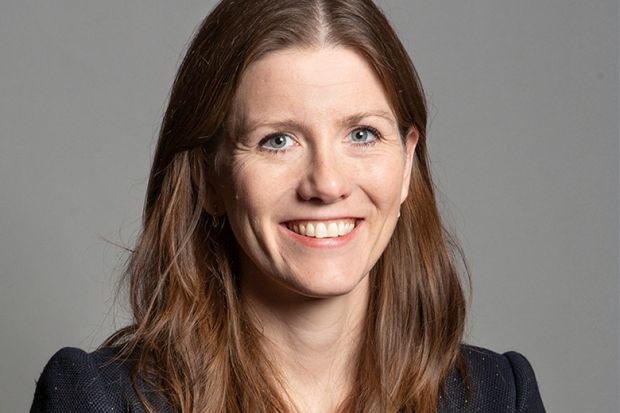England’s universities minister has redoubled her criticism of the recent expansion of higher education, saying it is “far too simplistic” to view university entry rates as an indicator of social mobility.
In a speech to the University of Buckingham’s Festival of Higher Education on 21 July, Michelle Donelan said educational inequalities between black and white students at UK universities highlighted why the sector’s focus should “not just be about getting students into university”, but ensuring that “they are taking high-quality courses that lead to graduate jobs”.
While about 60 per cent of black people enrolled in UK higher education by the age of 19, compared with 38.2 per cent of white people, they were “less likely to complete their courses, obtain upper-class degrees or go on to get a graduate job”, explained Ms Donelan, citing how 60 per cent of black students gained at least a 2.1 compared with 82 per cent of white students.
These levels of under-attainment indicated why it was “far too simplistic to look at the number going to university from a group” as a measure of success, said Ms Donelan.
“True social mobility is not just getting [students] to the door – it is getting them to the finishing line,” said Ms Donelan, who added that universities should “put students, their needs and career ambitions first”.
Her remarks follow comments to MPs earlier this month that “it doesn’t matter which groups don’t get to university” because the focus should be on outcomes and what is in the “best interests” on individual students.
Reflecting on her experience as the first in her family to go to university, Ms Donelan said she “directly know[s] the ability of universities to open up opportunities and transform lives”.
“However, we must always keep in mind that university is not the only path,” added Ms Donelan, saying “there should be no one-size-fits-all policy” and that “for some, further education will support their goals more”.
On university access, Ms Donelan said her mission was to “enable [doors to universities] to open for those with the grades to unlock them”, adding that the UK’s “world-class sector” should be “focused on individuals, on skills, rigorous academic standards and outcomes to fill our productivity gap, fuel our economy and create opportunities”.
Ms Donelan also praised universities for their response to the Covid-19 crisis and said she was “delighted” that the Office for Students had enforced the suspension of conditional unconditional offers, in which students are awarded a place regardless of their grades on the proviso that they discard all other offers.
“Frankly, there is no justification for such practices,” said Ms Donelan, adding that she wanted to see such offers “end for good”.
Register to continue
Why register?
- Registration is free and only takes a moment
- Once registered, you can read 3 articles a month
- Sign up for our newsletter
Subscribe
Or subscribe for unlimited access to:
- Unlimited access to news, views, insights & reviews
- Digital editions
- Digital access to THE’s university and college rankings analysis
Already registered or a current subscriber? Login






